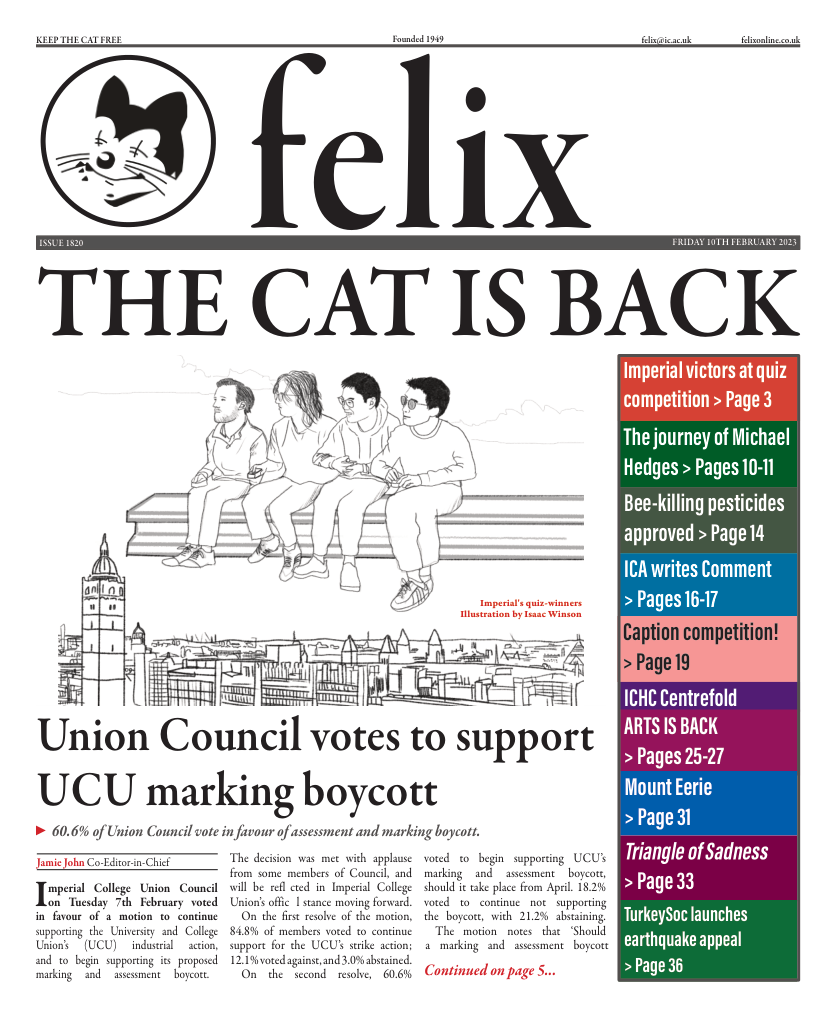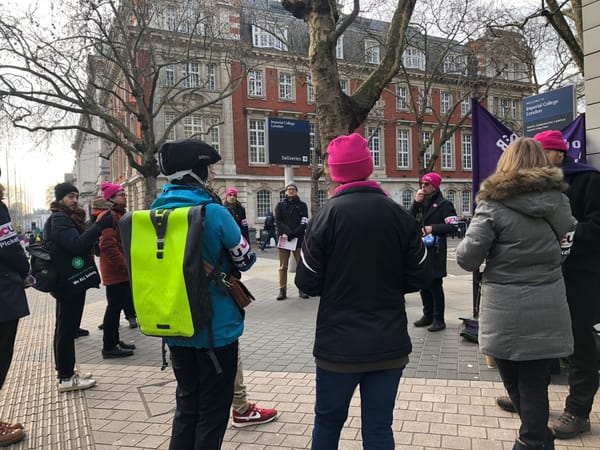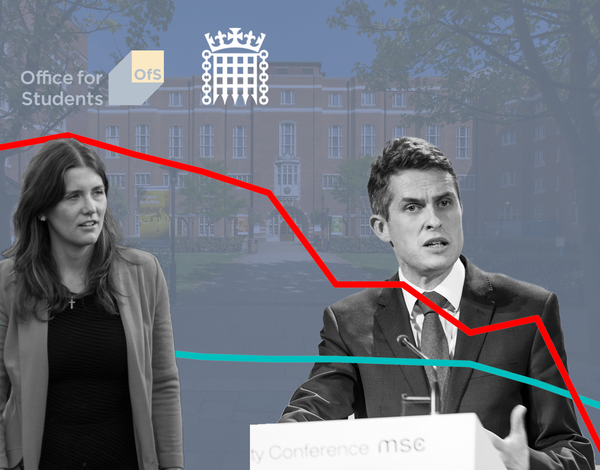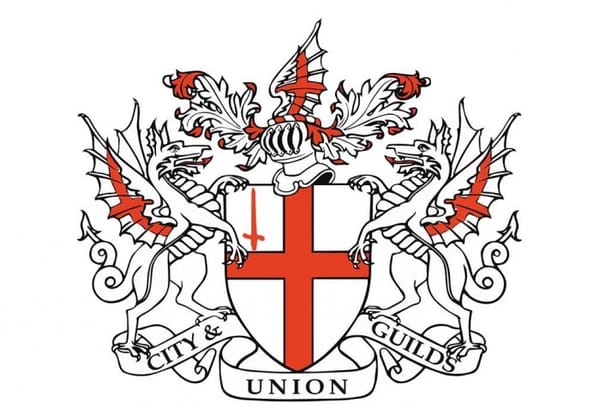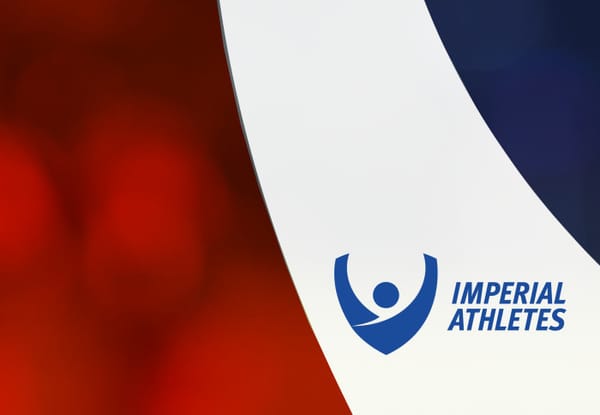Union Council votes to support UCU marking boycott
Proposed marking and assessment boycott would be first ever at Imperial
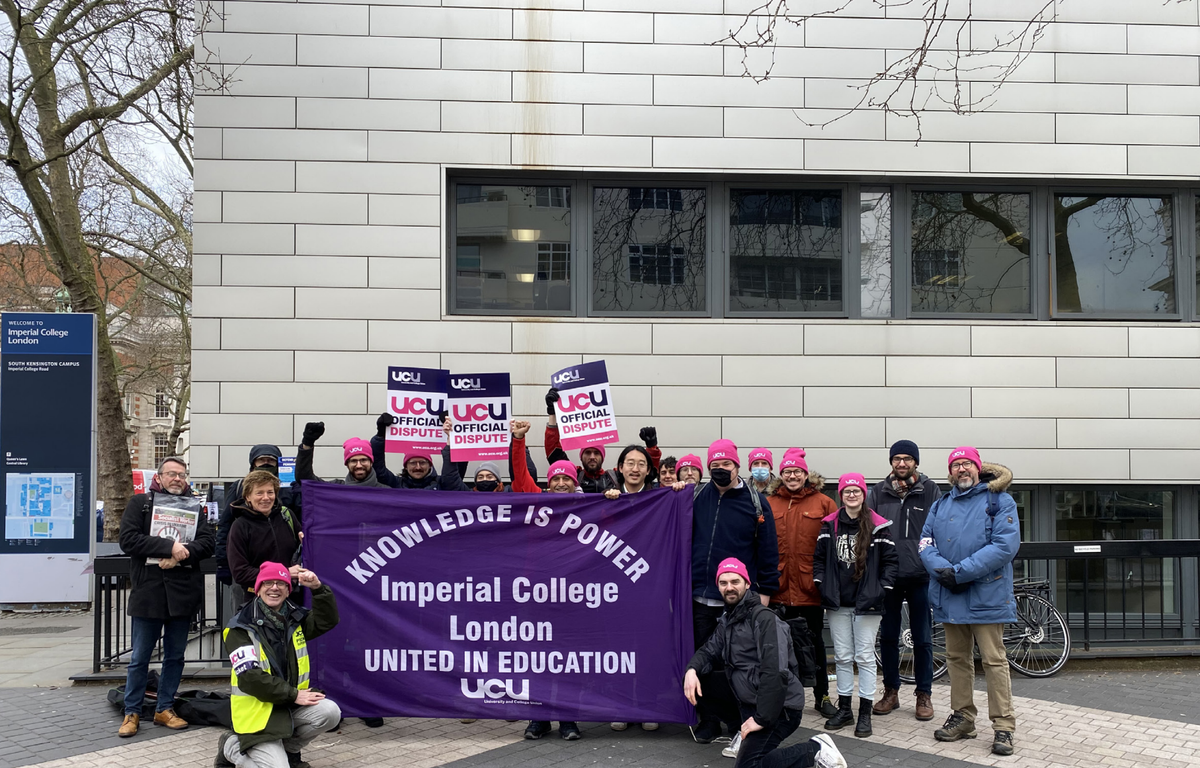
Imperial College Union Council on Tuesday 7th February voted in favour of a motion to continue supporting the University and College Union’s (UCU) industrial action, and to begin supporting its proposed marking and assessment boycott. The boycott, were it to proceed, would be the first of its kind in Imperial's history, College sources have confirmed.
Union Council's decision was met with applause from some of its members, and will be reflected in Imperial College Union’s official stance moving forward.
On the first resolve of the motion, 84.8% of members voted to continue support for the UCU’s strike action; 12.1% voted against, and 3.0% abstained.
On the second resolve, 60.6% voted to begin supporting UCU’s marking and assessment boycott, should it take place from April. 18.2% voted to continue not supporting the boycott, with 21.2% abstaining.
The motion notes that ‘Should a marking and assessment boycott take place, this may affect the ability of students to progress or graduate, and therefore could be significantly detrimental to students.’
The UCU represents academic and academic-related staff in further and higher education. UCU members nationwide are participating in industrial action relating to cuts to the USS pensions scheme, which covers UK higher education. In addition to this, Imperial UCU members are engaging in industrial action in response to the College’s 2022 local pay award, which they feel is insufficient given the current cost-of-living crisis.
Imperial College Union (ICU) has supported the UCU’s strike action in various forms since 2018. In the most recent strikes in November 2022, and in January and February 2023, space was provided in the Union building for striking staff to meet, hold events, and store materials.
However, the support of a marking and assessment boycott represents a step further in its endorsement of the trade union’s industrial action, and a change from ICU’s position earlier this academic year.
In November 2022, Union Council voted on a separate UCU marking and assessment boycott planned for January 2023 (which was later called off). In that vote, Council was noticeably more divided: 41% of present members voted not to support a boycott, 28% voted against the resolve, and 31% abstained.
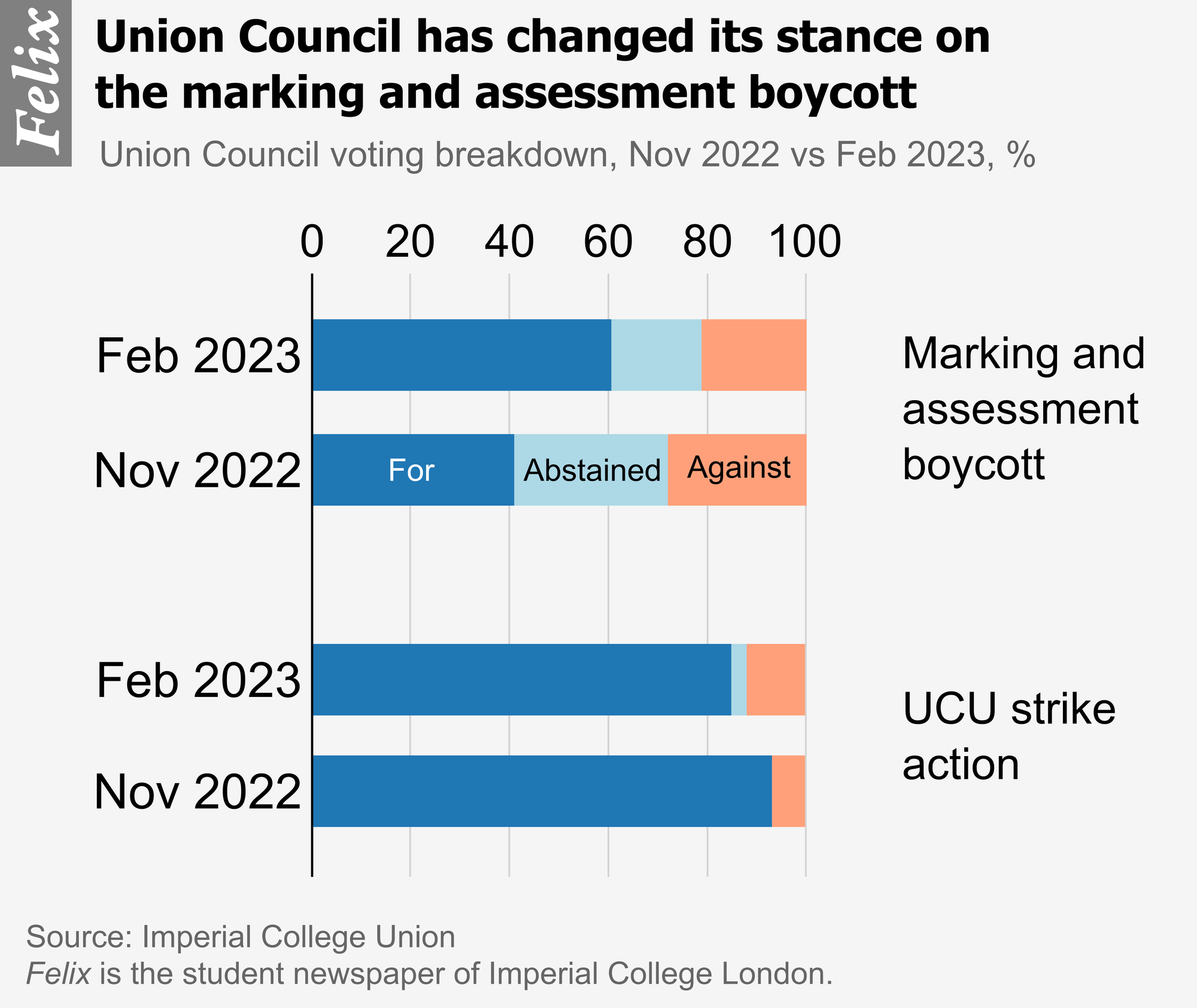
The UCU’s newly proposed marking and assessment boycott will begin from April 2023, pending the outcome of a ballot of the trade union’s members to renew its mandate to call industrial action. In the UK, industrial action is only legal if a majority of a trade union’s members agree to it in a ballot. During a marking and assessment boycott, UCU members are asked to cease all summative marking and associated assessment duties.
Council members heard from an Imperial UCU representative, who explained why he felt industrial action was necessary. He told them that the College had offered a median 3.3% pay increase for the 2022/23 academic year. Staff earning the very lowest salaries were awarded an 8.5% increase, whilst the highest earners received a 1.1% increase. He argued that, in the face of double-digit inflation, the average staff member would be hit by a real-terms pay cut of around 8%.
The UCU representative called upon ICU to continue supporting the strikes. He asked that students be encouraged to join picket lines, and that UCU members continue to be allowed to use parts of the Union building on the days of strikes.
“I completely reject this idea that the College raises all the time, that students are customers, and that somehow staff or students should be blamed for fees”, he said. “The manner in which the College behaves is frankly one of survival. All they’re trying to do is bring in money and put pressure on staff, when our interest is supporting students and just trying to get by.”
Council members discussed the potential impact of further industrial action, including the proposed marking and assessment boycott. There was a sense among some present that the boycott would spur the College to negotiate further. One member from the Royal College of Science Union argued that a boycott was now necessary, given that past strike action had been ineffective, saying, “I think it’s really important that we vote in favour of the marking boycott — it’s the only real way we can effect change.”
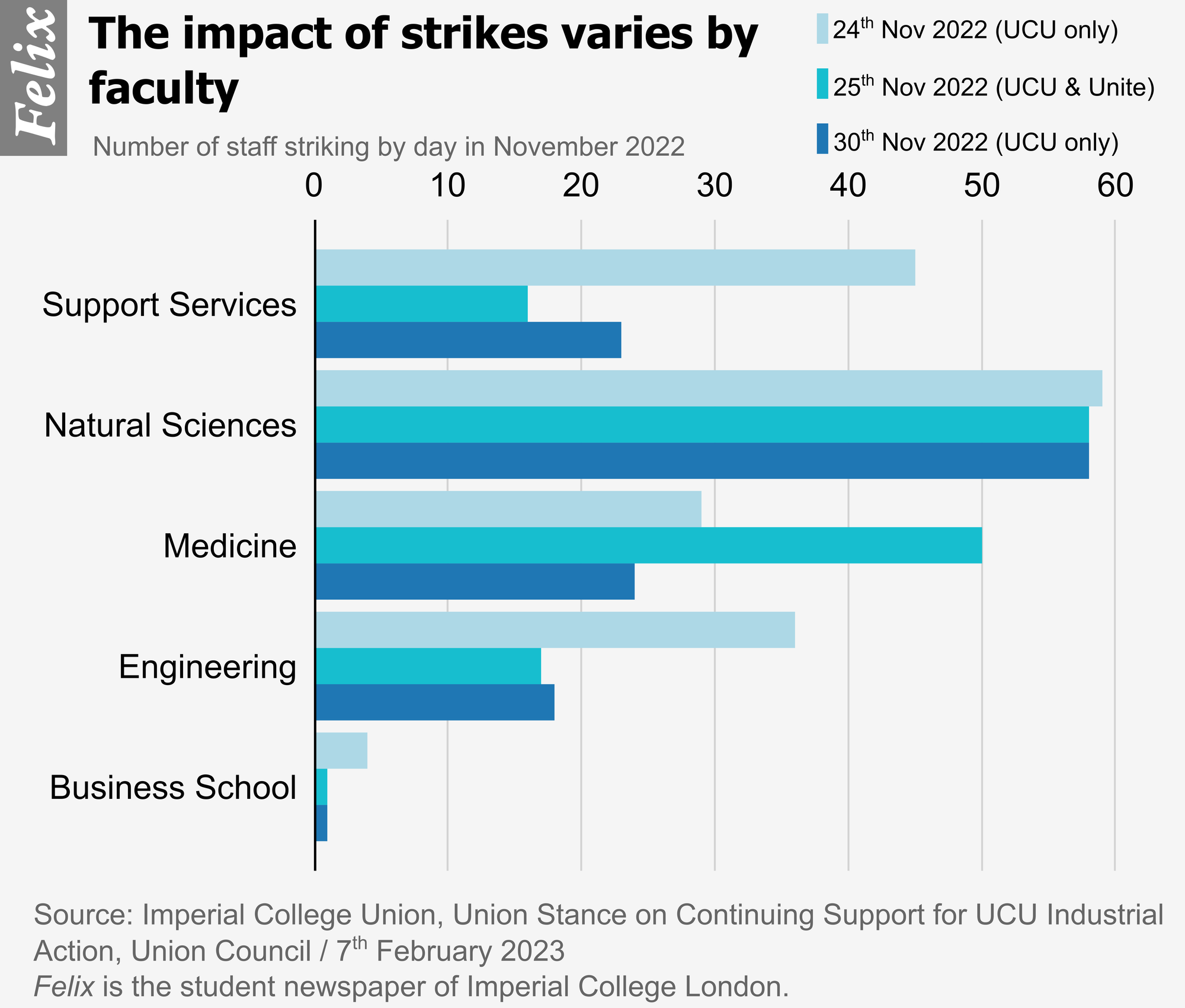
An Undergraduate Engineering Representative to Council argued that disruption to students would be minimal, especially compared to strikes, which result in lost teaching hours.
ICU President Hayley Wong reiterated that the Union puts the interest of students first. She also reassured members that, should a marking and assessment boycott happen, the College promises to do everything in its power to prevent it from having an impact on students.
The motion itself, authored by Jason Zheng, ICU Deputy President (Education), notes that ‘all College employees deserve a fair salary and fair pensions.’ On the topic of pensions it says that while ‘the USS pension scheme is one of the most generous in the UK’, its value has been eroded over time. The motion observes that ‘the UCU claims that the average union member will lose 35% of their future retirement income.’

